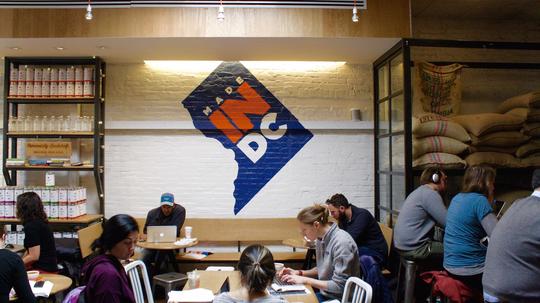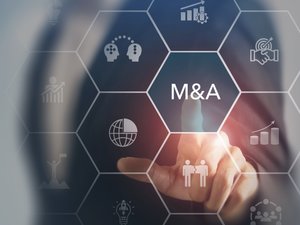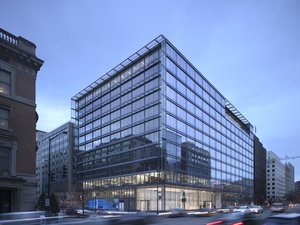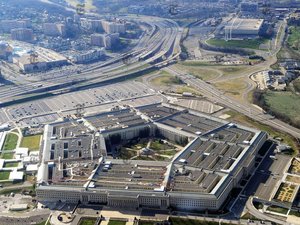
In 2016, to the delight of coffee enthusiasts, the White House ordered 150 glass Chemex coffee brewers emblazoned with the seal of the president. The glass-and-wood carafes are a favored device among baristas and coffee aficionados and the purchase signaled that the People’s House was paying greater attention to the beverage.
But the White House was several years behind a wave that coffee drinkers in D.C. have been riding for some time now. A proliferation of specialty coffee shops and local roasters, along with the recent entry of multiple notable national brands, has given District residents an unprecedented array of quality options for their morning cup.
So what prompted the rise, who are the players behind it and where does D.C. still have room to grow? I set off on a jittery, super-caffeinated exploration to find out.
The Three Waves
First, a brief primer: The coffee world generally thinks about coffee in three waves. The first wave is the simple proliferation of coffee as a popular beverage. Brands like Folgers and Maxwell House brought coffee into every American home. The second wave of coffee can be summed up in one word: Starbucks. Lattes, macchiatos and cappuccinos became a regular part of the everyday vernacular.
The third, most recent wave began in the late 1990s, defined by an independent obsession with coffee production. Starbucks and the other chains were able to educate consumers (as well as a generation of baristas) about the diversity of coffee, but were still very much corporate and marketing-driven brands. The third wave, led by Intelligentsia in Chicago, Counter Culture in Durham, N.C., and Stumptown in Portland, takes that education and awareness to a new level, with direct trade, a new attention to sourcing coffees from single origins and precise care into how each cup is prepared.
Origins
The driving force behind this is education about coffee’s roots and the desire of young, modern consumers to know more about where their food and drink comes from. But it’s still rare to be able to look into an aromatic cup of coffee and drink it while someone tells you about the father and son producers in Guatemala who harvested and processed the beans.
“Coffee is a very human thing, a very romantic thing,” says Gabriel Chait, Stumptown Coffee’s sourcing and sustainability manager. I’m sitting at the City Center Dolcezza sipping a cup of Stumptown’s Guatemala Finca El Injerto, talking with Chait. “The level of engagement that I have with the world by buying this cup of coffee and drinking this cup of coffee is immense.”
There’s a lot that can go wrong on coffee’s long journey from bean to brew. Coffee farmers are often poor, in emerging economies, without resources or education to know what will affect the final product. Add in weather, shipping and storage along the way and you can understand why roasters have become obsessed with going straight to the source.
At Vigilante Coffee Company, just outside the D.C. border in Hyattsville, Md., owner Chris Vigilante spreads three handfuls of green (unroasted) coffee beans out on a table. Two of the piles are uniform, clean beans. The third, an Indonesian coffee, features a few stray leaves and some beans that are shriveled and twisted.
“The whole reason we’re going to Indonesia is because we’re sick of looking at this,” says Vigilante. One of Vigilante’s green buyers will soon be moving to Indonesia to give the company unprecedented oversight of the process.
“As a buyer, we have an influence over how things get done,” he tells me, explaining that he and his buyers will visit producers to ensure that no child labor is used, that women are getting paid and educated equally and that the processing meets their quality standards.
For instance, Vigilante says, harvesters are often paid based purely on the weight of the coffee they pick, which can disadvantage some workers while also compromising the product. Vigilante has negotiated with some producers to pay groups of women--who he says often have a more critical eye for quality of coffee cherries--a flat rate for harvests, which ensures more money for them and better coffee for him.
"When people say, ‘who’s the best roasters?’ it’s really ‘who’s the best sourcer?’" he says. "We’ll cup and taste blindly, and whoever we’re loving we’ll make the efforts to go and visit the producers." Good origins yield good results.
So, who has the best coffee in D.C.?
An online survey of readers of a neighborhood blog isn’t exactly scientific, but approximately 2,800 respondents answered a recent question posed by POPville: Where is the best coffee in DC? Of the 47 coffee shop and roaster options presented, the winner was Compass Coffee.
Harrison Suarez and Michael Haft, two former Marine infantry officers, founded Compass in 2014 and have quickly grown, with their fifth location primed to open this year and their coffee available on shelves all around the region. The jocular duo summarizes their approach simply: “Compass Coffee is dedicated to making real good coffee. Nothing fancy, nothing too crazy or hard to pronounce, just really good.”
Fresh out of the Marines, Haft and Suarez started messing around with roasting in one of their parents’ basements and built Compass from the ground up. (Quite literally, in fact. The two did construction on much of the original 7th St. location themselves).
While they wouldn’t disclose production amounts citing a competitive edge, Compass is now importing some of its green coffee by the shipping container. The company is in the process of building out a massive production facility in Ivy City, which Haft says is 10 times larger than their 5,000 sq ft space in Shaw.
Compass' products have also reportedly reached some D.C. neighbors at the highest level. A former White House employee tells me the local roaster provides the coffee in the White House Navy Mess to keep the West Wing caffeinated. The Circus, a political show on Showtime, recently pictured a growler of cold brew coffee, engraved with the presidential seal, on the desk of Obama speechwriter Cody Keenan, and in a recent interview an Obama aide said the “nitro coffee at the mess is a true revelation.”
So is it Compass? Suarez and Haft declined to comment.
However, the two founders were happy to discuss other civic commitments integrated into Compass’ operations. Most of their machinery, for instance, from their Loring Kestrel roaster to their Modbar espresso machines and their Dixie can seamer, are American-made. Even the coffee tins you find in the store are made in Baltimore.
“The Made in America thing is definitely important to us. A lot of people are talking about buying American stuff, we’re actually doing it,” says Suarez. “We want to support people making things in the United States.”
The Compass founders have championed the same cause at a local level. The two were boosters of the “Made in D.C.” branding effort, an initiative to give a consistent label to products made in the District. Haft designed the logo, and the two later gave testimony at a Council hearing on the “Made in D.C.” bill, sponsored by Councilmember Charles Allen, a frequent customer. Haft and Suarez stood behind Mayor Bowser when she signed it into law last May.
“We want to build this city,” says Haft, noting the “Made in D.C.” designation could apply to software built in the District by D.C. startups. “It’s incredibly important to us that there be other business in the city.”
While the Compass founders build a community with "real good coffee," two miles up the road in Petworth, Joel Finkelstein is setting his sights even higher.
“Coffee should be good, but occasionally, it should be really fucking great,” says the owner of Qualia Coffee. At the back of an unassuming row house on Georgia Ave., Finkelstein is perched next to his humming roaster, closely tracking roast temperature with an open source software program displayed on a dual-monitor computer setup.
“One of the things I wanted to do from the beginning was change the conversation around, ‘what was good coffee?’”
A former health care policy reporter, Finkelstein turned his own passion into a full-time small business, with an emphasis on high quality, made-to-order drip coffee. While many baristas and coffee enthusiasts celebrated espresso, the Qualia founder wanted to highlight multiple single-origin coffees via the pourover method.
Qualia operates on a small scale; you won’t find their beans in stores. Their bagged roasts sell to a loyal following of online orderers and subscribers, and at a few local farmers markets. The rest of the roasts are all served in the small Petworth shop, though another Qualia location in Eckington will open soon.
But Finkelstein isn’t particularly concerned with foot traffic or appearing on market shelves. He didn't get into the business to get rich, he jokes. Rather, he wants to cater to those who seek out Qualia for what he sees as a superior product, and elevate their coffee drinking experience.
“We’re working with a handful of high quality growers,” he says. “Sometimes, we’re paying 25 to 30 percent more than the competition, but we think our product is twice or three times as good.”

While Compass prioritizes community and ramps up production, and Qualia banks on superior quality, Commonwealth Joe Coffee Roasters across the river in Pentagon City takes a decidedly more businesslike approach. Founder Robbie Peck and COO Chase Damiano met working as management consultants at Accenture.
“We saw an opportunity that D.C. was still feeling out its coffee scene and coffee culture, and we wanted to be a part of that,” Damiano tells me.
Commonwealth Joe began with Peck’s mother roasting coffee as a hobby in Culpeper, Va., and Peck bagging it with friends to sell at farmers markets. Initially modeled as an online coffee brand, Commonwealth Joe shifted as Peck and Damiano saw that there was an unfilled demand for quality retail coffee in some D.C. neighborhoods.
Through attending coffee tasting events at Disruption Corp., the tech incubator that was later acquired by 1776, Peck and Damiano developed a relationship with Vornado, the real estate giant that was Disruption Corp.’s landlord. That relationship led to conversations about a potential space in the new Bartlett development, a massive high-end apartment complex in Pentagon City.
“The area in Pentagon City, Crystal City is barren, in terms of quality coffee,” says Damiano. “This was a market need here and people appreciate it.”
Commonwealth Joe secured the spot and, following a slick rebrand from a cartoon character to a modern hexagonal logo, built out a sleek industrial space that opened in the fall of 2016.
While the spot has been a hit with local residents, Commonwealth Joe also hopes to reach people where they work. And the team also knows their prime audience.
“One thing we found was that the tech community tends to be early adopters. Early adopters for one thing tend to be early adopters for other things, so having something cool, new and innovative like nitro cold brew has been a huge success for them.”
If you’ve ever had draft coffee at a D.C. WeWork, you’ve had Commonwealth Joe.
Oh, and in case you were wondering, CJ's head roaster is still Peck's mother roasting small batches of beans out in Culpeper.
The Big Guns
Just as has happened with D.C.’s restaurants in recent years, the city’s thirst for quality coffee is garnering national attention. Third wave coffee producers have taken note and are snapping up leases left and right to try to grab a piece of the market.
Last year, California chain Philz picked D.C. as its first expansion market outside of the Golden State. A Silicon Valley favorite, Philz grew from a corner coffeeshop in San Francisco's Mission District to a coffee empire that recently raised a $45 million Series C funding round. In an interview last year, Philz founder Phil Jaber told me he saw similarities between San Francisco and D.C.’s populations, and that’s what drove the D.C. market as an East Coast test case.

Philz latest funding and expansion came a year after Blue Bottle, another third wave golden child, pulled in $75 million for its own Series C in June 2015. The California chain, acknowledging the District’s “burgeoning coffee scene,” will make its entry into the D.C. market this year with three shops -- Georgetown, The Wharf and by Union Market.
A third major third wave player, Philadelphia’s La Colombe, came to D.C. a few years ago and now operates four locations across the city.
The OGs
Every movement has roots, and the emergence of quality coffee in D.C. can be traced back to a few key players. Murky Coffee is regarded as one of the forerunners in D.C.’s third wave of coffee.
“Nick Cho and Murky, they set the tone. They were the first people to do latte art, to serve coffee at a high, high level,” says Chris Vigilante. “I think that was the catalyst for a lot of the growth you’ve seen.”
In the mid to late 2000s, Murky operated in two spaces, one on Capitol Hill, now occupied by a Peregrine Espresso, and another in Arlington, in the current location of Northside Social. While Murky was a leader in exposing D.C.-area consumers to a new way of considering coffee, Cho’s legacy has been marred by prolonged legal battles with the District and Arlington over unpaid taxes that led to the closing of both stores, and a colorful 2008 incident in which he famously threatened to punch a customer “in the dick,” following a dispute over an espresso order.
Cho has moved on from D.C., and Murky is no more, but a handful of other legacy shops are responsible for helping propel the third wave of coffee into the District. Since 2001, Georgetown’s Baked and Wired has served up coffee from renowned roasters like Stumptown Coffee, Madcap Coffee, Intelligentsia, and Ceremony. Tryst in Adams Morgan has a longstanding relationship with Counter Culture, the prized Durham, N.C. roaster.
But if you’re talking coffee legacy in D.C., there’s one name that rises above the rest: M.E. Swing’s.
Swing’s turned 100 years old last year. The roaster was a family businesses, handed down through the Swing family until the granddaughter of its founder sold the business to Mark Warmuth in 2006. Swing’s had ninety years of clout at the time, but Warmuth is the one who turned it into the third wave operation it is today.
“Mark came along and righted the ship,” says Neil Balkcom, Swing’s director of coffee operations. According to Balkcom, Swing’s began to bring on new staff around 2013 with notable experience in the coffee industry to revamp the coffee program. The new approaches to quality and ethical sourcing via direct trade that are a trademark of third wave coffee have been meshed with classic aspects of the company’s history.
Their coffee, for example, is roasted in vintage Probat coffee roasters at their Del Ray HQ, yet it’s inspected with state-of-the-art spectrometers and brewed with new school toys like the Nuova Simonelli Black Eagle espresso machine and the Poursteady automatic pourover machine.
Swing's is days away from opening their new shop at 14th and G St. NW, in the process of completing a renovation of their longtime store near the White House at 17th and G, and planning on multiple new retail shops in the near term, according to Balkcom.
Options
To say that the local market has been growing recently might be an understatement. The District alone now boasts dozens of independent coffee shops, roasters and quickly expanding local chains.
So while D.C. maintains an average of 1.18 Starbucks per 10,000 residents, consumers have more (and better) options than ever before.

“The D.C. coffee scene is really on the rise,” says Matt Viser. The deputy Washington bureau chief of the Boston Globe is also a coffee enthusiast who has supplemented his regular political coverage with coffee-related stories. Through his travels covering the 2016 presidential campaign, Viser has had a unique opportunity to sample cups of coffee from premier roasters and shops around the U.S. And he’s encouraged by what he’s seeing back home in the District.
“It's had a pretty good local scene for a while -- with the likes of Swings and Peregrine roasting their own beans, and strong multi-roaster shops like Baked and Wired, The Coffee Bar, and Chinatown Coffee Co finding a healthy market -- and it's only getting better.“
Members of D.C.’s coffee community agree. “In the past two or three years you’re starting to see not just national attention but all these really innovative cafe spaces are opening up,” Alex Gable tells me. “We’re getting a taste of what has happened in New York or what has happened in San Francisco.”
A former Swing’s barista, Gable is now the mid-Atlantic trainer for Stumptown, tasked with educating and training the company’s wholesale partners in serving their coffee. He also co-founded NOVA Coffee Labs, a craft coffee catering company, and is involved with other initiatives to strengthen D.C.’s barista community.
Gable says he finds a more collaborative atmosphere among District baristas than in other markets, and that there’s a shared interest in learning from each other to further elevate the craft. “It’s amazing to see the way D.C. baristas have found time to come together.”
What's Next?
There’s never been a better time to be a coffee drinker in the District and D.C.’s coffee boom shows no signs of slowing down. Stores like M.E. Swings, Qualia, Blue Bottle, Dolcezza, Compass and Slipstream all have new locations planned for 2017.
“Blue Bottle seems poised to make a big splash in D.C., which is very exciting,” says Matt Viser. “La Colombe's continued expansion and the arrival of Philz are signs that DC is on the national radar. The city has a really solid base, but it still lacks some of the high-end experimentation going on in places that have a longer history with coffee, like New York, Seattle, and the Bay Area. But D.C. is definitely catching up.”
We still have a lot to learn.
Ryan Fleming owns Slipstream, a Logan Circle coffee bar that prioritizes service to better inform customers. Fleming echoed what almost every other person I spoke with for this article said: that D.C. needs more coffee education to continue its evolution. For Fleming, that should be an expectation of baristas and servers.
“In one glass of wine you probably have four or five touch points, from the menu, the label, the server, hearing from someone else, and if you get that every time you order a glass of wine you build that up over time without even trying.” That piece is still largely missing with coffee, he argues, where consumers have no context to develop a personal preference.
Slipstream, one of the few local shops to serve coffee from highly-regarded Michigan roaster Madcap, hopes to achieve this through employee training, a more bar-like setting and unique menu offerings. One item, for instance, is a flight that serves a shot of espresso and drip coffee made with the same single-origin bean side by side, accompanied by a notecard with details and tasting notes.
“Coffee is something that people have almost every day, so our goal is to help people understand it a little better,” Fleming says.
In charting D.C.’s trajectory, Chris Vigilante says that people need to overcome the idea of specialty coffee as fancy. “When you look at Australia and how they do cafes and service, there’s an elevated level of service and an educated consumer,” he says. “I think that’s the next thing: What was once fancy, is the new normal.”
And at the end of the day, there’s just one simple way for D.C. consumers to further that self-education: get out there and drink as much coffee as you can.




